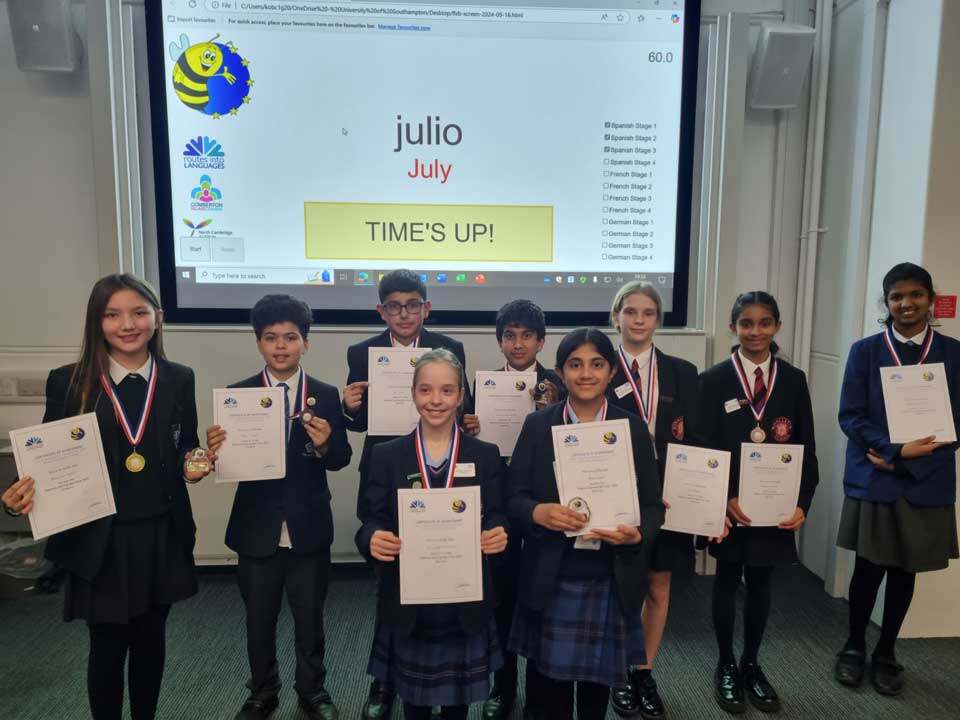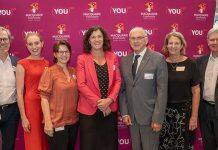Young language learners visited the University of Southampton yesterday to put their linguistic skills to the test in the South East final of the 2025 Routes into Languages Foreign Language Spelling Bee.


Thirty two Year 7 pupils from ten schools across the South East had one minute each to translate randomly selected English words from the 200 they had learnt and spell them out loud in French, German or Spanish.
The finalists have progressed from nearly 3,000 pupils who entered the South East regional qualifiers, which began at the start of the school year.
The highest scorers in each language will now progress to the National Finals, which will be held in Cambridge at the end of the school year.
Dr Jane Lavery , Associate Professor in Latin American Studies at the University of Southampton helped to support the event. She said: “This is the seventh year we have hosted the Routes into Languages Foreign Language Spelling Bee. It’s an absolute pleasure to support and so encouraging to see so many talented young linguists.
“I am really passionate about promoting the benefits of learning new languages to school children and reversing the decline in our country’s language skills. The Spelling Bee is a real shining beacon for languages.”
Whilst the Spelling Bee focuses on the key skills needed for beginners and improvers in a new language (vocabulary building, phonics, pronunciation, etc.) at Key Stage 7, students can progress to the Translation Bee in years 8 and 9, which focuses on verb conjugation and sentence structure. These skills are key to success at GCSE and beyond.
Matilde Ercolani, a teacher at Perins School in New Alresford, said: “Beyond improving vocabulary and spelling, the competition provides an inspiring experience – particularly for the three students who reach the regional stage, as they get to visit a university and experience its academic atmosphere firsthand.
“The Spelling Bee is more than just a contest – it is a celebration of learning, determination, and the power of language.”
In the UK there are hundreds of job vacancies asking for languages or additional language skills, as well as opportunities overseas – 96 per cent of University of Southampton language students are in work or in further study after 15 months after graduating.
Sarah Schechter, Director of Routes into Languages East at Murray Edwards College at the University of Cambridge, said: “Evidence suggests that there are huge health, social and cognitive benefits to learning languages, and of course, getting an insight into the cultures that go with them, extending far beyond the practicalities of being a useful tool when abroad. It is very encouraging that we have had so many entries to this year’s competition in all regions of England.”







































